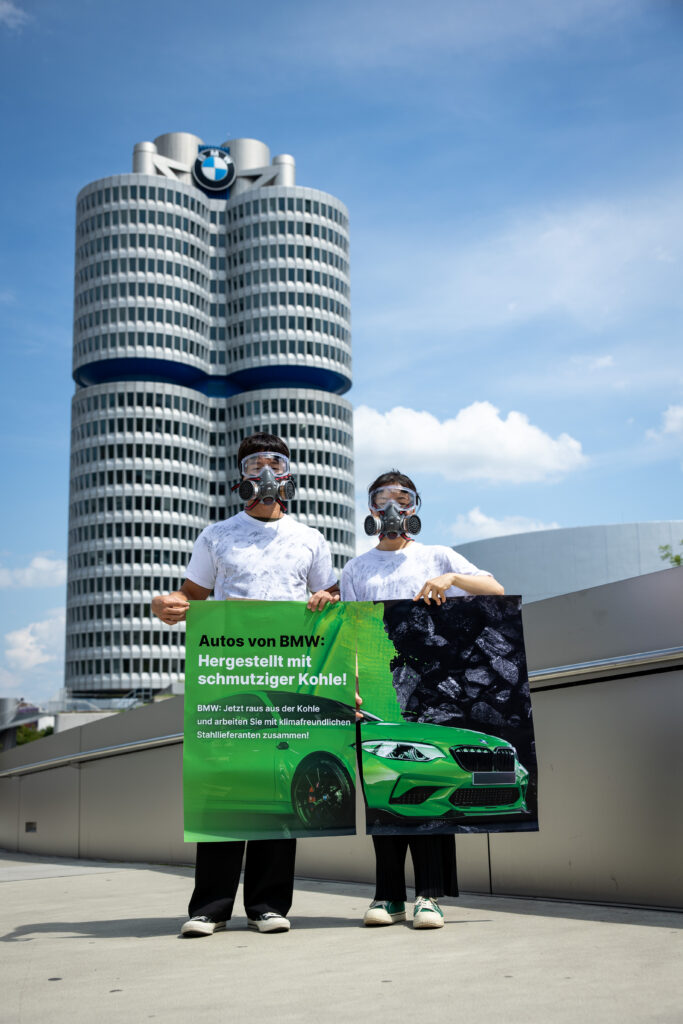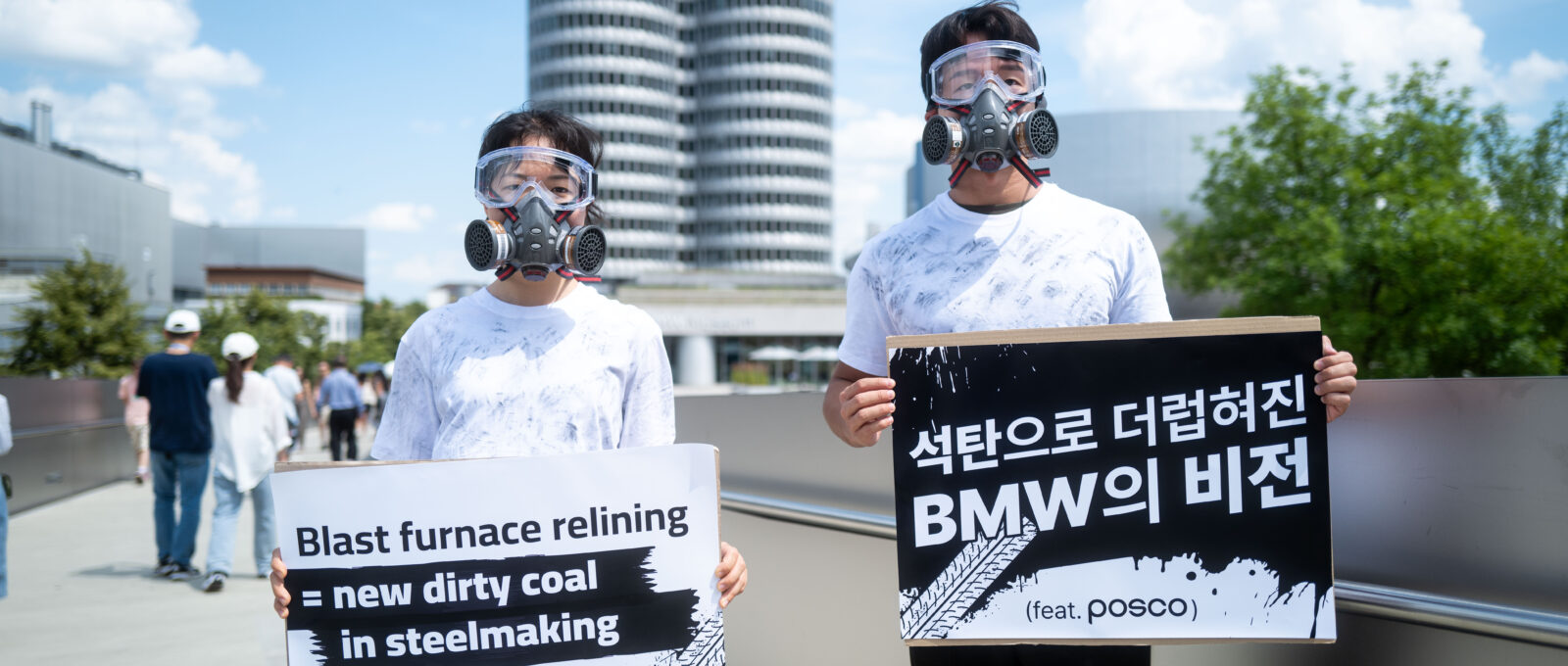POSCO, South Korea’s leading steel manufacturer, is on the brink of a decision that could lock in coal dependency for decades. Instead of transitioning to cleaner production methods, POSCO is currently relining a coal-powered blast furnace facility in Pohang and has announced plans to reline a second facility at the world’s largest integrated steelworks, POSCO Gwangyang. This move would extend the production of steel using coal by 15-20 years, potentially emitting over 199 million tonnes of CO2. A global group of 19 civil society organizations is calling on leading German automakers who purchase on POSCO products to be true leaders on green cars and green steel procurement supply chain decarbonization by preventing this setback.
For POSCO to proceed with its plan to reline the coal-powered blast furnaces at two of its largest South Korean plants signals a commitment to coal-based steel production well into the future. This stance contradicts global efforts to decarbonize heavy industries, significantly hindering South Korea’s ability to meet its climate targets and contributing to global greenhouse gas emissions.
Since October last year, POSCO has been facing civil society pressure to reconsider its approach. Local and global civil society groups have been vocal about the need for POSCO to phase out blast furnace technology, or at least present a clear plan for transitioning to cleaner production methods. Last year, 24 groups sent a joint letter to POSCO’s CEO urging action but received no response. This lack of engagement from POSCO underscores the urgent need for external pressure to catalyze change.
In a strategic move to ensure a greener steel production, 19 global civil society groups have come together to call on the three leading German automakers—BMW, Mercedes-Benz, and Volkswagen to take action. As global leaders in the automotive industry, these companies have pledged to reduce emissions across their supply chains. By continuing to source steel from POSCO, these German automakers risk undermining their own stated decarbonization goals. The letters from civil society groups call on these automakers to adopt a clear stance against POSCO’s reliance on coal-powered steel production.

As leaders in the automotive industry, BMW, Mercedes, and Volkswagen can set a precedent for cleaner supply chains and demonstrate a commitment to environmental stewardship. By asking suppliers to provide transparent phase-out plans for their coal facilities and refusing to purchase steel from suppliers who rely on outdated, high-emission processes, these automakers can drive demand for more sustainable steel production methods. This, in turn, can push major steel manufacturers like POSCO to innovate and adopt cleaner technologies, aligning their practices with global climate targets. A greener transition is possible, if automakers hold suppliers accountable. To reach climate targets, it is essential for global automakers to use their purchasing power by shifting away from coal and towards cleaner alternatives, thereby fostering green steel making technologies like hydrogen reduction and electric-arc-furnaces powered by renewables.
